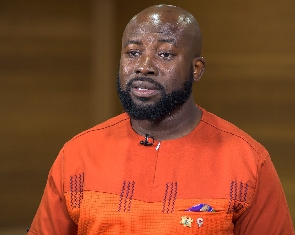Investigators looking into more than 50 new cases of corruption in Iraq that are related to the war ravaged country’s reconstruction have found stolen money lodged in accounts around the world including Ghana.
Full story
More than 50 new corruption cases tied to reconstruction in Iraq have been opened in the past six months, a result of scrutinizing large cash transactions made by Americans involved in the nearly $150 billion rebuilding program.
Some of the cases involve people suspected of mailing tens of thousands of dollars to themselves from Iraq, or of stuffing the money into duffel bags and suitcases when leaving the country, investigators said. In other cases, millions of dollars were moved through wire transfers. Suspects then used cash to buy BMWs, Humvees and expensive jewelry, or to pay off enormous casino debts.
Some suspects also tried to conceal foreign bank accounts in Ghana, Switzerland, the Netherlands and Britain, investigators said. In other cases, cash was simply found stacked in home safes.
There already have been dozens of indictments and convictions for corruption since the 2003 invasion of Iraq. But the new cases seem to confirm what investigators have long speculated: that the chaos, weak oversight and wide use of cash payments in the reconstruction program allowed many Americans who took bribes or stole money to get off scot-free.
"I've had a continuing sense that there is ongoing fraud that we have not been able to nail down," said Stuart Bowen Jr., who leads the Office of the Special Inspector General for Iraq Reconstruction, an independent oversight agency. "This spate of new cases is evidence that that sense was reasonably well placed."
The cases were uncovered during the first phase of a new, systematic inquiry into financial activities, which investigators said began in earnest last summer. A related investigation of rebuilding funds for Afghanistan began in February.
Bowen's office agreed to answer general questions on the new inquiry but declined to divulge the names of the suspects, who include private contractors, military officers and civilian officials.
Developed in the Treasury Department, the financial monitoring effort goes by the generic name of the Financial Crimes Enforcement Network, or FINCEN, which continually generates data on suspicious financial transactions in support of more than 275 federal and state law enforcement agencies, according to a December report by the Government Accountability Office.
Because the investigation has covered only limited areas in the United States so far, Bowen, speaking by telephone from Iraq, said he estimated that dozens of additional cases would be opened by the end of the year.
Investigations involving the inspector general's office for Iraq's reconstruction have led to 35 indictments and 27 convictions for fraud in numerous forms; the number of convictions rises to 58 when cases pursued by other government agencies are included, according to the Justice Department.












